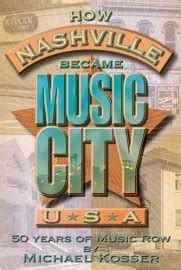A Quote by Catherine Camus
Intellectuals of [Albert] Camus' age who had previously disliked him now appreciate him. And at that point we come back to literature, and it's agreed that he was always a great writer.
Related Quotes
[Albert Camus] positions are sensed. So, naturally, those intellectuals who don't have that experience have difficulty in comprehending it. But I think it made Camus more tolerant because he had already seen both sides of things when the others had only ever seen one. They imagine poverty, but they don't know what it is. In fact they've got a sort of bad conscience about the working classes.
Albert Camus was never abandoned by his readers. Camus is enormously read. He's the highest selling author in the entire Gallimard collection, and has been for some years now. Sales haven't ever stopped, so to talk about rediscovering him would suggest that he isn't read anymore and that's not true.
So time passes, and a much more political rather than literary reasoning intervenes, and from the day that [Albert] Camus wrote The Rebel, in 1955, there comes the rupture, and all, nearly all of the left wing intellectuals become hostile to him. Since he was already unfavourably viewed by the right-wing, he found himself entirely alone.
What the articles which have been written about The First Man propose is humility. The acceptance of these contradictions. Seeking an explanation is death. The lie is death in [Albert] Camus. That's why in Camus' play The Misunderstood the son dies, killed by his sister and his mother, because he lied. He never told them who he was. They killed him because they didn't recognise him.
Whites have always put one against another and now they have a dead man who was nothin' but a, he admitted it himself, Malcolm X, was a tramp or had white women sellin' their body for him, he was nothin' until the Honorable Elijah Mohammed made him great, made him great, taught him, even his name X come from Elijah.
That is what diminishes the artist and his song. The artist is now hermetically sealed. The publishing company got him his deal and they expect to profit from his songs. So what if he is a better singer than a songwriter; let's put him in a room with a real songwriter. Something great is bound to come...except very often nothing great comes out of such contrived match-ups. Nobody knows where a great song comes from, and that's why so many writers credit the Lord as a co-writer (though I notice they never offer Him half the writer's royalties) when they come up with a real gem.
Recognition, gratefulness exist.[ Speech for the Nobel Prize] is to show that this is what has come from what [Albert Camus] teacher did for him. And also throughout the world there are Monsieur Germains [his old schoolteacher] everywhere. That's why I published the letters, so that he could have a place in the work.
Christ and the life of Christ is at this moment inspiring the literature of the world as never before, and raising it up a witness against waste and want and war. It may confess Him, as in Tolstoi's work it does, or it may deny Him, but it cannot exclude Him; and in the degree that it ignores His spirit, modern literature is artistically inferior. In other words, all good literature is now Christmas literature.
I had always told my father that before working with him in the same frame as an actor, which I was petrified to do, I wanted to learn from him, so I had pleaded with him for two years before he agreed to write and direct 'Mausam.' It was our dream project and a wonderful opportunity for us to work as a family.




















